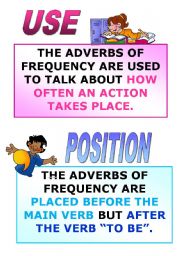http://espinheiraenglish3.blogspot.com/2021/03/simple-past-regular-irregular-verbs.html
Forming Past Simple Tense :
https://espinheiraenglish3.blogspot.com/2021/04/irregular-verbs-forming-past-simple.html
Past simple – regular verbs
The past simple is the most common way of talking about past events or states which have finished. It is often used with past time references (e.g. yesterday, two years ago).
Please explain past events or states!
A past event could be one thing that happened in the past, or a repeated thing.
I stopped at a zebra crossing.
We carried on with the test.
We played tennis every day in August.
A state is a situation without an action happening.
We stayed at my grandparents' house last summer.
How do you form the past simple?
Regular past simple forms are formed by adding -ed to the infinitive of the verb.
start → started
kill → killed
jump → jumped
That seems easy!
Yes, but there are some spelling rules. If a verb ends in -e, you add -d.
agree → agreed
like → liked
escape → escaped
If a verb ends in a vowel and a consonant, the consonant is usually doubled before -ed.
stop → stopped
plan → planned
If a verb ends in consonant and -y, you take off the y and add -ied.
try → tried
carry → carried
But if the word ends in a vowel and -y, you add -ed.
play → played
enjoy → enjoyed
OK, not quite so easy! But the past simple form doesn't change at all for I, you, he, she, we and they, does it?
No, the form doesn't change. See, it is easy!
What about the pronunciation of the -ed ending?
There are three kinds of pronunciation: /d/, /t/ and /ɪd/. Look at the table below.
| /d/ | /t/ | /ɪd/ |
|---|---|---|
| arrived | asked | wanted |
| failed | crossed | decided |
| agreed | stopped | started |
Aaagh! How do I know how to pronounce each one?
Good question. Well, really all you need to know is that /d/ is easier to say after arrive, and /t/ is easier to say after ask. For /ɪd/, the infinitive ends in a /d/ or a /t/ sound already so you must add an extra syllable for these verbs.
All right, that makes sense, but how do you form questions and negatives?
With the verb did (do in the past) + the infinitive.
Did you pass?
You didn't fail, did you?
Yes, I did. / No, I didn't.
Right, thanks, I've got it now!
Good. But you also need to learn the irregular past simple forms.
You mean there are verbs that don't end in -ed in the past?
Yes, they don't all end in -ed. Have a look at the past simple irregular verbs too.





















